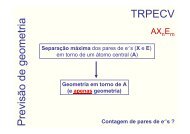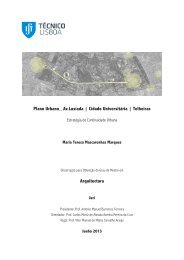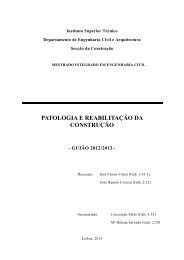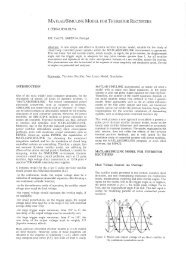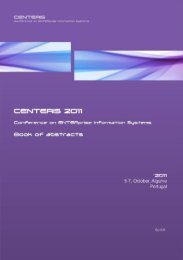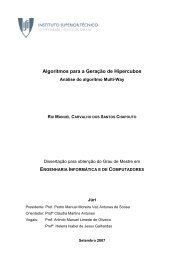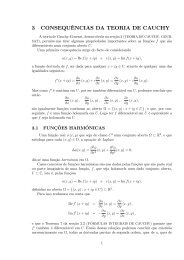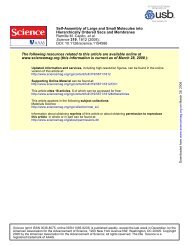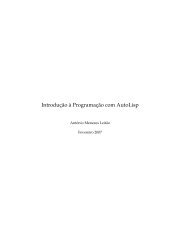dissertacao.pdf
dissertacao.pdf
dissertacao.pdf
Create successful ePaper yourself
Turn your PDF publications into a flip-book with our unique Google optimized e-Paper software.
The first case refers to algorithms which we say run in time polynomial in<br />
log(N). Such an algorithm is called efficient as its complexity function grows<br />
in a rather controlled way. In opposition, algorithms belonging to the second<br />
case are called inefficient: they quickly become infeasible by any computer or<br />
even network of computers.<br />
When referring to problems, we will call them hard if there is no known<br />
algorithm running in polynomial time that solves it. In opposition, a problem<br />
which can be solved for any input with an algorithm running in polynomial time<br />
is said to be an easy problem.<br />
1.5.3 Modular Arithmetic<br />
Modular Arithmetic is a fundamental basis for cryptography in general and for<br />
RSA in particular. For this reason we present a set of definitions and results<br />
which will enable the reader to fully understand the operations behind RSA. We<br />
will also present some of the most used algorithms within the RSA operations.<br />
We start with the congruence relation:<br />
Definition 6. Let N be a positive integer. We say that two integers a and<br />
b are congruent modulo N if there exists an integer k such that a − b = kN.<br />
We represent this relation with the following notation:<br />
a ∼ = b (mod N) (2)<br />
It should be noted that this is an equivalence relation. After choosing the<br />
modulus N, we get a partition of the integers into N different classes since every<br />
integer a must be congruent modulo N to an integer in the set {0, 1, ..., N − 1}.<br />
When the modulus N is implicit, we define [a] = {b ∈ Z : a ∼ = b (mod N)},<br />
called the equivalence class of a. We introduce two operations with these equiv-<br />
alence classes, simple extensions of the usual addition and multiplication:<br />
Definition 7. (Modular Operations): Given two classes of equivalence [x]<br />
and [y] defined modulo N, we define the operations:<br />
addition: [x] + [y] = [x + y]<br />
multiplication: [x][y] = [xy]<br />
Throughout the text we will stop referring to the equivalence class [x] as [x]<br />
and instead write simply x. The modulus regarding which the equivalence class<br />
is defined will also not be written, rather it will be explicit from its context.<br />
7



